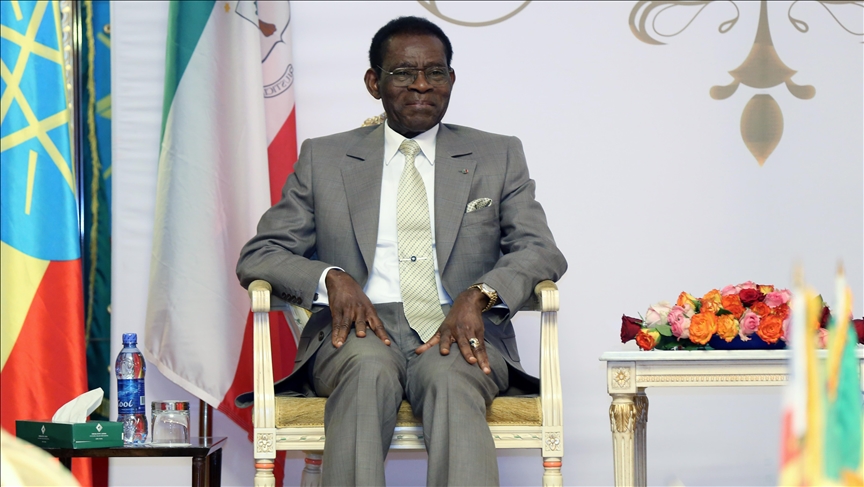Equatorial Guinea heads to polls for presidential, legislative elections
Incumbent President Obiang Nguema is facing Esono Ondo, leader of opposition Convergence for Social Democracy party

DOUALA, Cameroon
The people of the Central African country of Equatorial Guinea are voting on Sunday for their new president and representatives in both parliamentary chambers.
Out of a population of less than 2 million, about 400,000 voters are expected to cast their ballots between 8 a.m. and 6 p.m. local time (0700-1700GMT).
The fate of the Central African country is being decided among three political parties in the presence of observers from the African Union and the Community of Portuguese-Speaking Countries delegation.
Incumbent President Teodoro Obiang Nguema, 80, is the candidate of the Democratic Party of Equatorial Guinea. He has been in power since 1979 after a coup against his predecessor and is seeking a sixth term.
Obiang, the longest-serving leader of the world, will face Andres Esono Ondo, 61, of the Convergence for Social Democracy, the only opposition party that is not banned, and Buenaventura Monsuy Asumu, 63, of the Social Democratic Coalition Party, allied with the Democratic Party of Equatorial Guinea in the legislative and municipal elections.
In Equatorial Guinea, which has the reputation of being one of the most closed and authoritarian in the world, wealth is based on gas and oil. It is the third largest oil exporter in sub-Saharan Africa. The country has experienced several years of economic recession and its international relations have been marred by corruption, according to Amnesty International. The vast majority of the population lives below the poverty line, according to the World Bank.
"They need a message of hope" is different from what was conveyed by Obiang's power, according to Essono, who is running for the first time.
Esono believes that he is bringing this message to the leaders who, according to him, cannot solve people's problems.
"Continuity is giving the vote to the lack of jobs, the precariousness of civil servants, the impunity of the big men of the regime, the absence of an effective education and health system, without attention to youth," he said during an election campaign which ended on Friday.
His competitor Monsuy is running for the fourth time. He faced Obiang in 2002, 2009, and 2016, each time coming out as an unsuccessful candidate and considered by public opinion as a stooge for the outgoing power.
Victory expected for Obiang
He also intends to carry out reforms "for a better understanding of democracy in the country" and bases his political transition program "on the commitment to fight against poverty and the redistribution of national wealth.”
Public and international opinion is certain of the forthcoming victory of Obiang, who won 93.7% of the vote in 2016 and whose party holds all 55 seats in the Senate and 99 of the 100 seats in the outgoing National Assembly. In 2011, he lifted the constitutional age limit of 75 for governing.
"There is no chance that he will not win," InterGlobe Conseils, a pan-African firm specializing in geopolitical expertise, told Anadolu Agency in a letter.
The firm's experts believe that the prospects for the election are quite clear with the incumbent president winning.
"Apart from a popular uprising, which seems unlikely in a poor police state, where citizens are mainly concerned with finding solutions for food rather than regime change, a split within the Obiang clan could be the long-term prospect for a new Equatorial Guinea," it added.
Anadolu Agency website contains only a portion of the news stories offered to subscribers in the AA News Broadcasting System (HAS), and in summarized form. Please contact us for subscription options.


